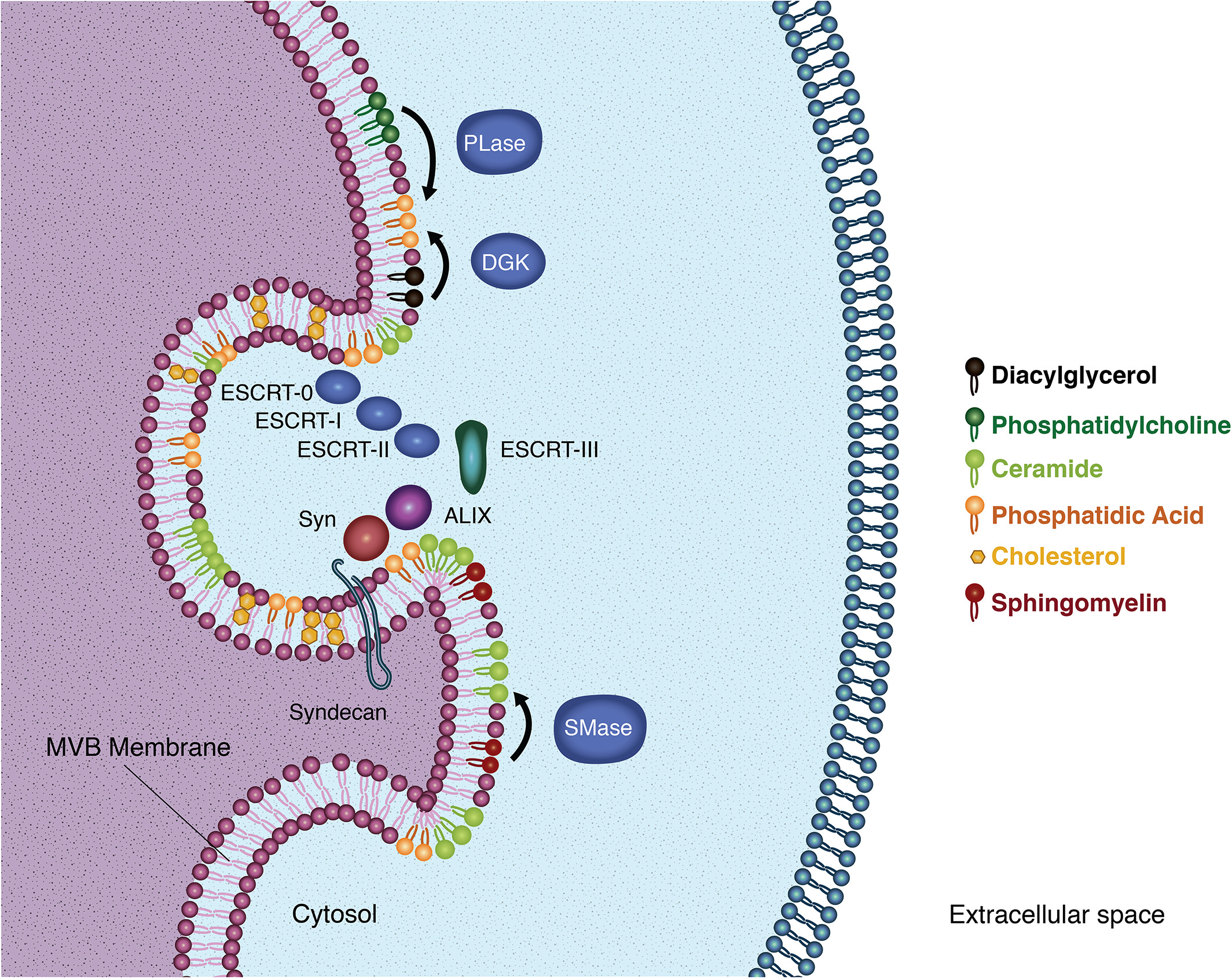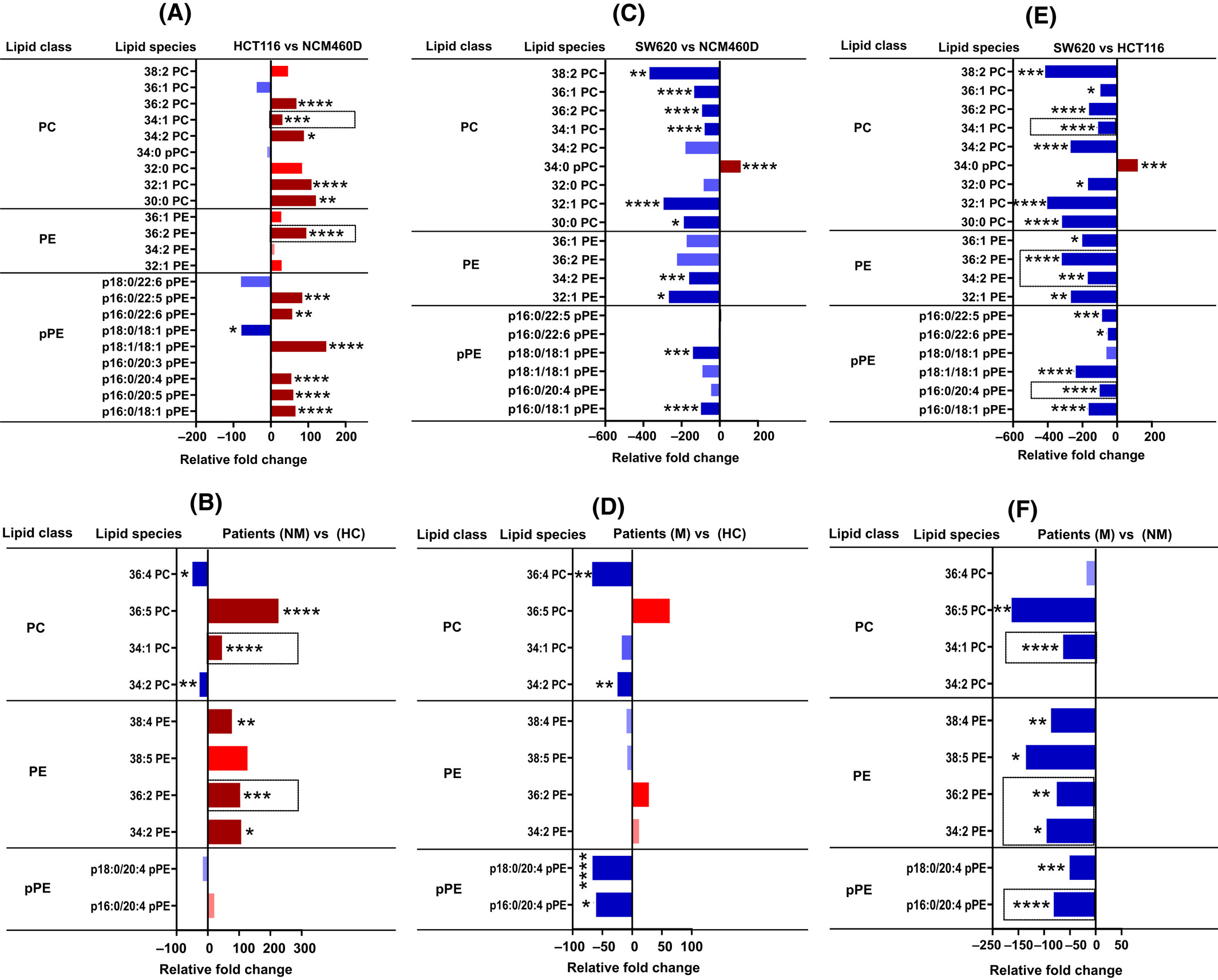Exosomes Lipidomics Service
Exosomes lipidomics analysis is a high-throughput analytical technique focused on the lipid composition and dynamic changes of exosomes. Exosomes are nanoscale vesicles secreted by cells, and their membrane structure and contents are rich in various lipids, including phospholipids, sphingolipids, cholesterol, and their metabolites. These lipids not only form the structural foundation of exosomes but also play crucial roles in intercellular signaling, membrane fusion, transport, and the regulation of biological processes. By combining high-resolution mass spectrometry and quantitative analysis techniques, this service provides a comprehensive analysis of the types, relative abundance, and metabolic changes of exosomal lipids.
Exosomes lipidomics service is widely used in cancer research, metabolic diseases, cardiovascular diseases, and neurodegenerative diseases, among other fields. For example, in cancer research, exosome lipidomics analysis helps identify tumor biomarkers and resistance mechanisms; in metabolic disease research, analyzing the dynamic changes in exosome lipids can reveal potential regulatory mechanisms in lipid metabolism during the pathological process; in cardiovascular diseases, exosome lipidomics helps understand the connection between inflammation and lipid metabolism, providing new insights and targets for diagnosis and treatment.

Donoso-Quezada, J. et al. Traffic, 2021.
Figure 1. Lipids in Exosome Biogenesis.
Services at MtoZ Biolabs
Based on the high-resolution mass spectrometry platform and advanced sample preparation and extraction methods, the exosomes lipidomics service provided by MtoZ Biolabs can comprehensively analyze the types and composition of lipids in exosomes. By precisely identifying lipid molecules and their relative abundances, the service includes lipid category analysis, functional annotation of lipid metabolic pathways, and dynamic changes analysis. It aims to reveal the role of exosomal lipids in cell communication, metabolic regulation, and disease mechanisms, providing detailed and reliable data support for basic research, disease diagnosis, and therapeutic development. Depending on the research goals and needs, the service can be divided into the following two aspects:
1. Targeted Exosome Lipidomics
Targeted lipidomics focuses on known lipid molecules with a predefined list of target lipids. Using high-resolution mass spectrometry platforms, combined with advanced sample preparation and extraction methods, this approach accurately measures the relative or absolute abundance of these target lipids in exosome samples.
2. Untargeted Exosome Lipidomics
Untargeted lipidomics aims to achieve comprehensive coverage of exosomal lipids. By employing advanced mass spectrometry techniques, it identifies as many known and unknown lipid species as possible, revealing potential biomarkers and global metabolic changes.
Service Advantages
1. High Sensitivity and High Resolution
Through high-resolution mass spectrometry platforms, the lipidome in exosome samples can be efficiently detected, ensuring precise identification and quantification of low-abundance lipids.
2. Comprehensive Coverage of Lipid Species
Untargeted lipidomics provides a comprehensive scan of exosomal lipids, capable of identifying a wide range of known and unknown lipid species, revealing global changes in lipid metabolism.
3. Precise Data Analysis and Biological Interpretation
Using advanced bioinformatics tools, detailed functional enrichment analysis, metabolic pathway analysis, and biological significance annotation are performed on lipidomic data, providing in-depth theoretical support for disease mechanisms, therapeutic strategies, and biomarker research.
4. Customized Analysis Plans
Flexible, customized services are provided based on research needs, covering both targeted and untargeted lipidomics analysis to meet the requirements of different disease models, research objectives, and data analysis needs.
Applications
1. Disease Biomarker Screening
By analyzing changes in the lipid composition and abundance of exosomes, this service helps identify lipid biomarkers associated with cancer, metabolic diseases, and neurodegenerative diseases, providing support for early disease diagnosis and treatment efficacy assessment.
2. Disease Mechanism Research
The exosomes lipidomics service can be used to explore the key role of lipid metabolic pathways in pathological processes such as tumorigenesis, inflammatory responses, and autoimmune diseases, revealing the potential mechanisms of lipidomics in disease progression and immune regulation.
3. Drug Development and Efficacy Monitoring
By utilizing exosome lipidomics data, this service evaluates the impact of drugs on intercellular signaling and lipid metabolism, validates drug targets, optimizes therapeutic strategies, and monitors treatment efficacy.
4. Nutrition and Metabolism Research
The exosomes lipidomics service can be used to study the effects of dietary components, metabolic interventions, and environmental factors on lipid metabolism, revealing the connections between nutritional metabolism and disease development.
Case Study
1. Lipidomic Profiling of Exosomes from Colorectal Cancer Cells and Patients Reveals Potential Biomarkers
This study utilizes exosome lipidomics analysis to explore changes in exosomal lipids in colorectal cancer (CRC) cell lines and plasma samples from CRC patients, aiming to identify potential CRC-related biomarkers. The study subjects include CRC cell lines, plasma samples from CRC patients, and healthy controls. High-resolution mass spectrometry was used to comprehensively profile the exosomal lipids, analyzing the differences in lipid composition across various samples. The results indicated that certain lipid species, including various phospholipids and sphingolipids, were significantly elevated in the exosomes of CRC patients. Further functional analysis revealed that these differential lipids may be involved in key processes of cancer initiation and progression. The study concluded that exosome lipidomics can effectively reveal lipid changes associated with CRC, and these differential lipids may serve as potential biomarkers for CRC, providing new directions for early diagnosis and treatment of the disease.

Elmallah, M I Y. et al. Molecular Oncology, 2022.
Figure 2. Lipidomic Analysis of CRC Cell Lines and Patient-Derived Exosomes.
Deliverables
1. Comprehensive Experimental Details
2. Materials, Instruments, and Methods
3. Data Analysis, Preprocessing, and Estimation
4. Bioinformatics Analysis
5. Raw Data Files
FAQ
Q1: What Types of Samples are Required for Exosome Lipidomics Analysis?
A1: The exosome lipidomics service is generally applicable to various biological fluid samples such as plasma, serum, urine, cell culture supernatant, and tissue fluids. After sample collection, exosomes should be quickly isolated and stored to avoid repeated freezing and thawing, which can compromise the stability of lipid components. Additionally, it is recommended to provide sufficient sample volume (e.g., several milliliters of plasma or cell culture supernatant) to ensure the sensitivity and accuracy of the analysis.
Q2: How Is the Accuracy and Reproducibility of Exosome Lipidomics Analysis Ensured?
A2: The exosome lipidomics analysis service provided by MtoZ Biolabs ensures high accuracy and reliability through a strictly standardized sample preprocessing process, advanced mass spectrometry platforms, and rigorous quality control strategies (such as internal standard calibration and parallel analysis of QC samples). Additionally, professional bioinformatics tools are used to analyze the data, ensuring objective and comprehensive interpretation of the results.
How to order?







